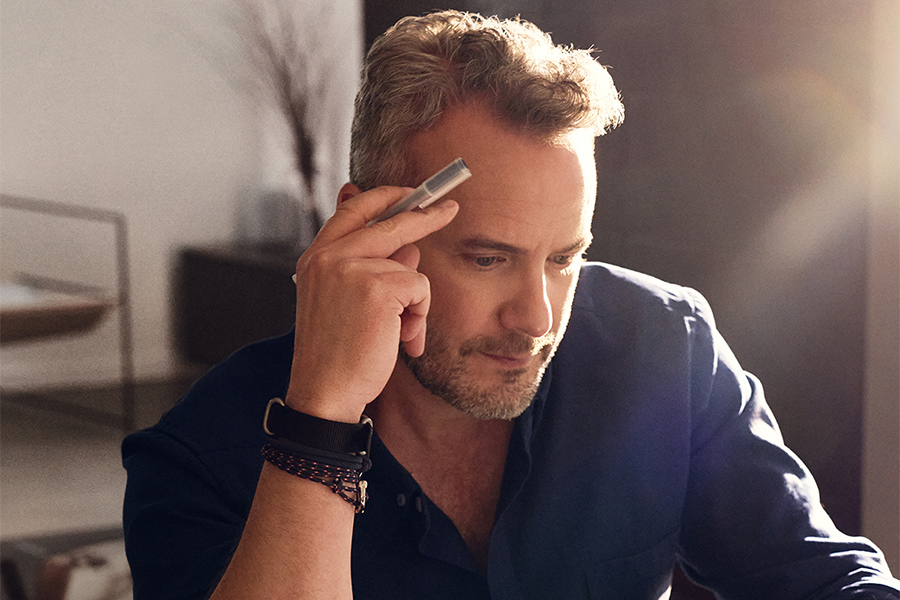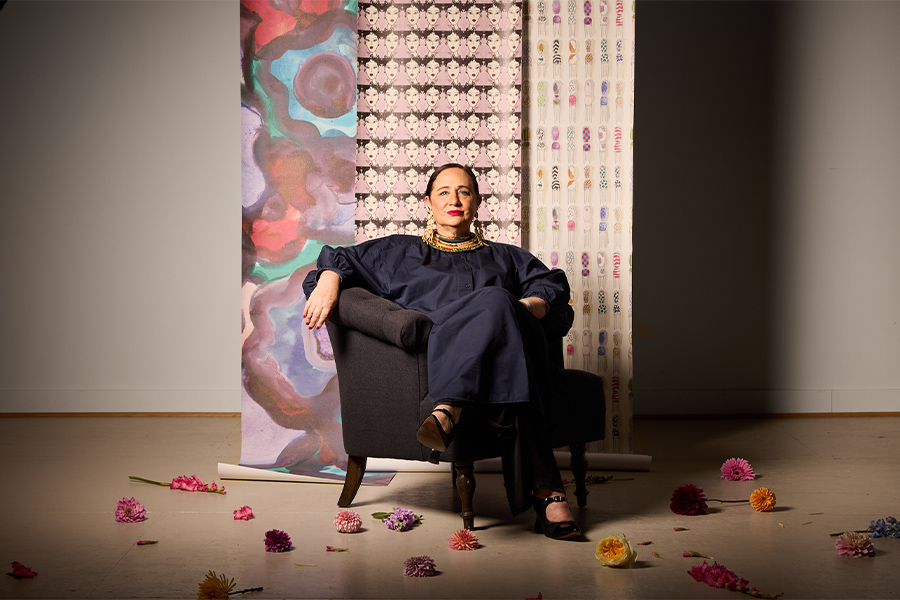Underpinned by the acronym TESLA—temperature, environment, sound, lighting, and ambiance—hospitality group Noble 33’s collection of restaurants enthralls diners with uncomplicated dishes centered on stellar ingredients and warm atmospheres heightened by tightly curated playlists. Emphasizing the experiential has been important to cofounder and chairman Tosh Berman, who originally launched the Madera Group in 2013, followed by Noble 33 in 2021 with partner Mikey Tanha.
With offices in Las Vegas, Denver, and soon Miami, his portfolio continues to impress with Toca Madera in West Hollywood, Las Vegas, and Scottsdale (next up is Houston and Miami); Casa Madera in Toronto and West Hollywood with Miami on the boards; Sparrow Italia in London with a Miami location opening this year; Meduza Mediterrania in New York, which is also expanding to Houston and Miami; 15 locations of vegan- and vegetarian-focused Tocaya Organica; and the recently announced 1587 Prime (a partnership with NFL players Travis Kelce and Patrick Mahomes of the Kansas City Chiefs) headed to Kansas City early next year.
Here, the former U.S. Ski team member shares how Noble 33’s concepts tap into his background developing nightlife hotspots AV Nightclub in Hollywood and CAKE in Scottsdale and San Diego to woo diners with meaningful nights out.
What drew you to the restaurant world?
Tosh Berman: When I was 15, I wanted to get a car, and my dad told me I needed to get a job. The only job I could get was as a dishwasher in a fine dining Italian restaurant in Santa Barbara, California. I barely saved enough money, but I bought a 1989 4-cylinder truck. I used to wash the dishes as fast as I could, then I would run out on the floor and watch what was going on. I fell in love with the orchestrated dance. People don’t realize all the parts that need to come together to create the right experience. That summer changed my life. I continued to grow within the hospitality industry, working from the bottom to the front of house.
What did you learn from the first venue you opened, a Mexican bar in Denver?
TB: It taught me the importance of theatrical elements that drive what we consider today to be high-energy fine dining. If you boil it down, it’s the idea of dinner and a show. It’s about giving people an opportunity to choose where they want to spend their time and money, as well as an experience that makes them feel entrenched in that environment. I always wanted to create experiences that made people feel something.

The greenery-filled Toca Madera West Hollywood
Your time in Cabo San Lucas, Mexico running the Pink Kitty nightclub inspired the launch of the Madera Group. What did you want to bring to the U.S.?
TB: In Mexico, we got our produce from the farmer’s market and fish came right off the boats. When I got back to Los Angeles, I realized the way most people thought of Mexican cuisine was more Tex-Mex and wasn’t representative of its complexity. I wanted to introduce what I thought was missing in the market—not just diversity, but the importance of quality products in these recipes. Toca Madera is our metropolitan-style Mexico City steakhouse. It’s darker, it’s sultrier, it’s sexy. Casa Madera is our Riviera Maya version of this idea: predominantly outdoors with tons of landscaping that’s just as inviting during the day.
How is Tocaya Organica, your vegan-focused fast-casual brand, changing the F&B landscape?
TB: It was the first all-organic, fast-casual concept where everything on the menu was vegan but also allowed for non-vegan add-ons. It gave us this unique profile where there was not a single thing on a menu that anyone wouldn’t be able to eat. We became a catchall for every type of individual. Vegans protesting cattle cars in Bakersfield, California would be sitting side-by-side with a non-vegan eating carne asada inside the restaurant. It was this wild moment, and it’s something I’ve carried with me.
Why did you want to highlight Mediterranean cooking with Sparrow Italia and Meduza?
TB: Israeli and Arabic cultures have so many similarities. I wanted to showcase elements of both, and bring people together. That’s what food does. It’s [also] an evolution from nightlife—sitting at a table, talking to people, sharing a bottle of wine, having great food, and creating longterm bonds.

Noble 33’s first New York concept, Meduza Mediterrania, is topped with a sculptural ceiling
Why was it the right time to enter the New York market with Meduza?
TB: We had looked at New York several times over the years, and the truth is I didn’t think we were ready. It’s easy to get over your skis. You do well in one market, and you start thinking you can do it anywhere. That’s not how the restaurant [world] works. Building a hospitality company is like building a home. You have to lay your foundation and put in your infrastructure before you go vertical. Also, I wanted to bring a concept that would be homegrown in New York. We may not be a hospitality company from New York, but Meduza is a New York restaurant. That was important to me.
Your restaurants are the handiwork of in-house team Monochrome. Why did you establish it?
TB: My dad was an architect, and my mom is a sculptor and jeweler. My dad was always explaining to me how things are built. I became passionate about design. I decided to start my own design firm, and so I created Monochrome. I design all the restaurants myself, more on the back of a napkin. I’ll screenshot things, create the formats, and pick out every light fixture and finish. Then my team adapts those ideas and puts them on paper. It’s a collective process.
What goes into creating the lively and inviting atmosphere your venues are known for?
TB: Part of the Noble 33 ethos is encapsulating people in an experience. We look at the music program, which has to be thematic with the experience. When you go into Meduza, the music is international. It’s sexy and inviting. We’re thinking about how the consumer feels while they’re eating. We put a lot of time into it, and we produce a lot of our own music. Lighting can also make or break a restaurant. It’s a balance of all those things.
What fuels Noble 33’s success?
TB: I [may not be] the smartest person in every room, but I always strive to be the hardest working. I’m the first person to show up and the last to leave. I dissect and reinspect every aspect of our business, from menu creation to design. I’m thinking about our customer, I’m doing research, I’m working, and I don’t take it for granted. We’re less restaurateurs and more brand creators, and our restaurants are retail locations of those brands. Our responsibility is to give a product that is sellable, so that the customer wants to come back over and over. It’s [always] people above profit.

A rendering of the bar at the recently announced 1587 Prime steakhouse in Kansas City
This article originally appeared in HD’s April 2024 issue.


